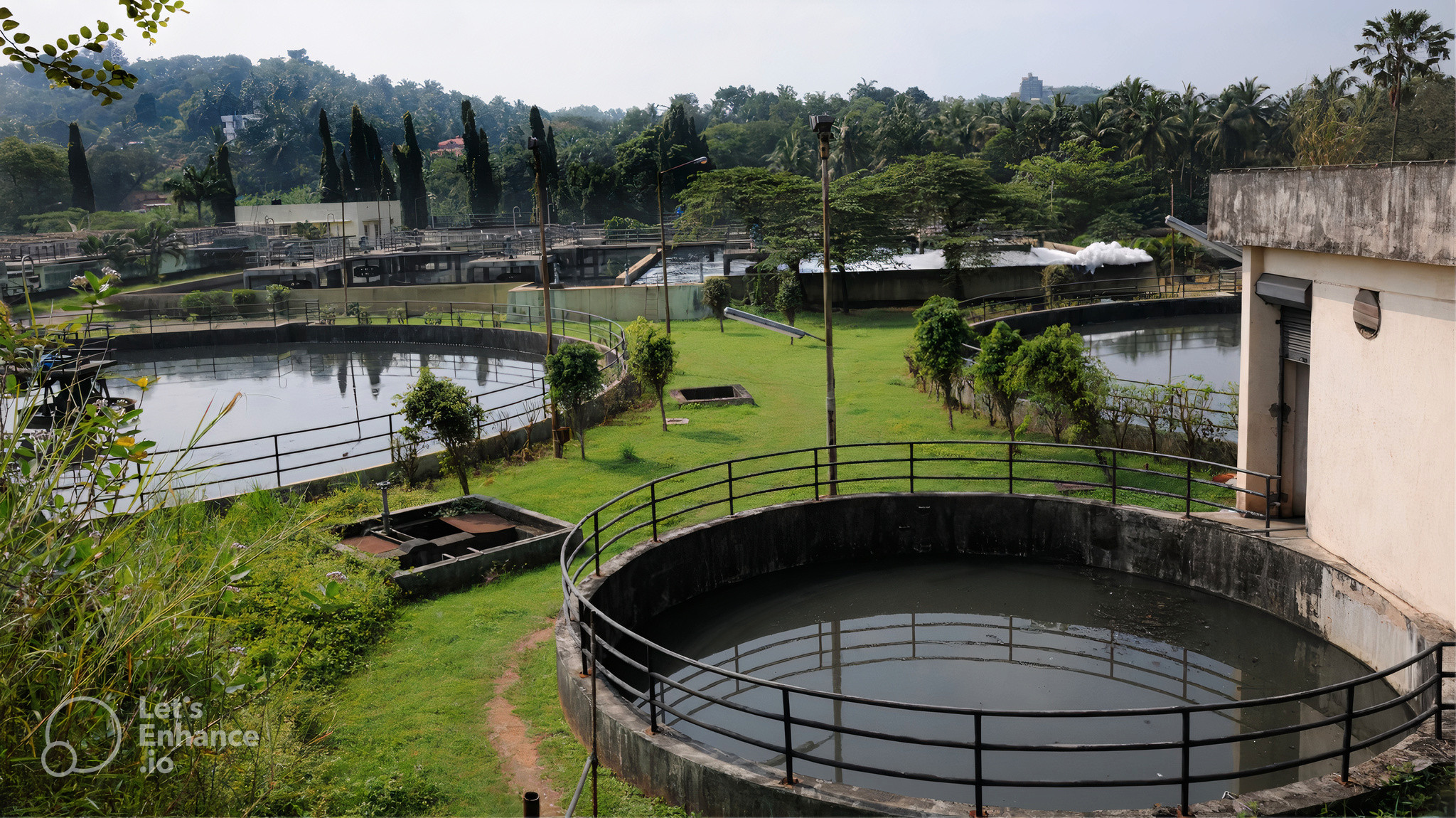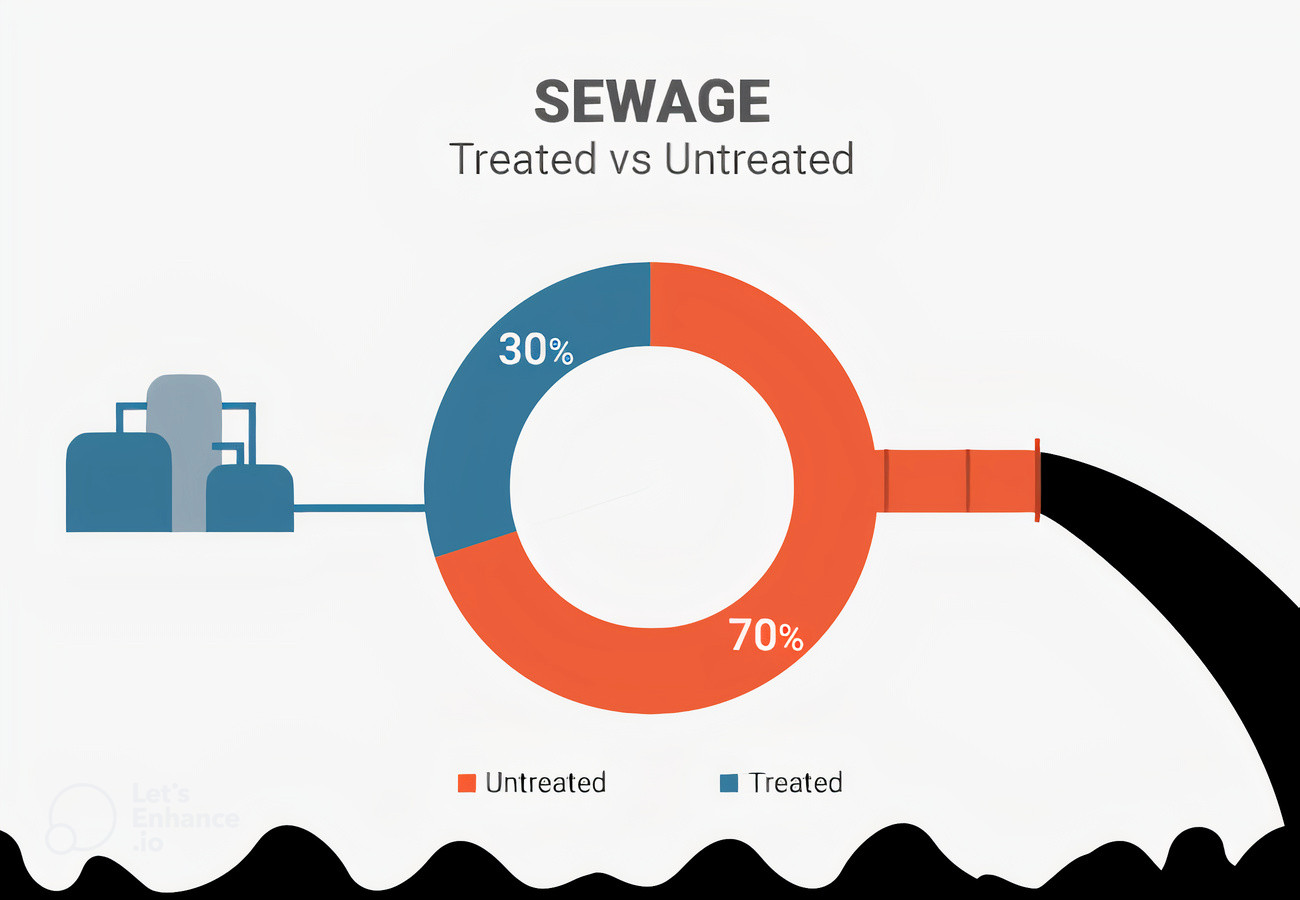

The country is charging towards becoming a water-scarce nation and is considered to be the world’s most water-stressed country. According to a NITI Aayog report from 2018, the per capita availability of water is set to decline to 1,465 cubic meters by the year 2025 from 1,544 m3 in 2011. At present, over 600 million people face extreme water stress in India. In addition to this, with the decline in the availability of water, the country is also predicted to face a GDP drop by a total of 6%. Thus, it is extremely crucial to understand the importance of managing our water needs and resources in an efficient manner.
But the question is from where would India get water in the coming years? According to a report by the Central Pollution Control Board, India will need at least 1.5 trillion m3 of water by the year 2030. So how are we going to bridge this huge gap between water demand and supply?
There is only one sustainable alternative that could save India from its impending water stress, and that is the recycling and reuse of treated wastewater. Reusing and recycling our wastewater has become a necessity to meet the water demands in rural and urban places.
Normally, raw sewage dumped into a water body can clean itself through a natural process. But the rise in population as well as large-scale urbanization, has led to an increase in sewage discharge and industrial effluent discharge. The higher quantum of wastewater affects the self-purification phenomenon, resulting in anoxic conditions in the water bodies. Furthermore, the use of chemical fertilisers poses a serious threat to the nearby water bodies resulting in eutrophication.

Image Source: Asian Development Bank
Almost 80% of the water supply flows back into the ecosystem, as it should because we need to give back what we took, except it flows back as wastewater. But we didn’t extract wastewater from the ecosystem, did we? This could potentially create a huge environmental and health hazard if not treated properly. However, if we execute proper management of the wastewater, it would be easier for water managers to meet the city’s/town’s water demand. According to the 2015 report of the Central Pollution Control Board, presently, India has an overall capacity to treat approximately 37% of its wastewater, which happens to be almost 27,963 MLD, against a daily sewage generation of approximately 61,754 MLD. In addition to this, most of the sewage treatment plants in the country do not work at their maximum capacity and also don’t conform to the standards prescribed.
It's about time that India starts taking timely measures to avoid an array of issues ranging from health problems due to poor sanitation and conflicts over water access to food security and climate change.
The NITI Aayog report also mentions that India is placed 120th amongst 122 countries with respect to the water quality index, with nearly 70% of the water in the country being contaminated.

A study conducted in 2017 using advanced modelling techniques to observe the effects of crop irrigation with untreated water has provided alarming results. The study finds that globally 65% of all irrigated areas within 40 KMs downstream of urban centres (35.9 million hectares) worldwide are affected by untreated wastewater.
Currently, untreated wastewater is one of the major causes of groundwater and surface water pollution in India. Additionally, wastewater treatment could serve as an alternative source of water supply given the shortage of freshwater. Depending on the degree of treatment, treated water can be supplied for direct consumption or partially treated for industrial and irrigation purposes. Additionally, phosphate and nitrate that are recovered from sewage treatment plants can be used again to create high-quality manure. And this could also help the agricultural sector to reduce the amount of manure and fertilizer needed for optimal crop development and maintaining food security.
However, the current centralized approach toward wastewater treatment would not be adequate if we were to attain sustainability and the abovementioned aspects of wastewater management. This is due to the approach's restricted sewerage network access, insufficiently functional STPs, and financial constraints.

Image Source: The Energy and Resources Institute
Instead, a decentralized wastewater management approach is needed with a combination of high-tech solutions and sustainable methodologies. In the rapidly urbanizing cities of developing countries, this approach has become an attractive solution for addressing the problems of water pollution and water scarcity.
Having said that, not many countries have been successful in implementing such a sophisticated approach. So India has no one to look up to.
Now that we know what to do, we need to understand how to do it. And as mentioned there aren’t many examples in front of us to take inspiration from. Surprisingly, there is one country, which would be the least expected country to have successfully implemented such a sophisticated system and achieved a sustainable wastewater treatment system.
Let’s learn more about this in our next and last blog in the series of "Wastewater: A Problematic Resource."